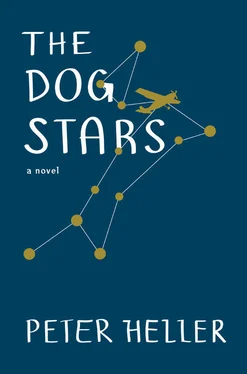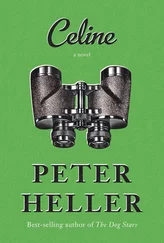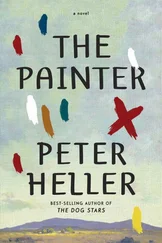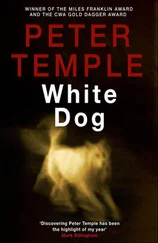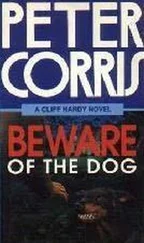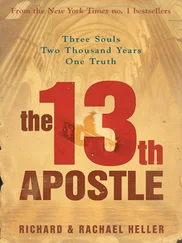And for a time while flying, seeing all this as a hawk would see it, I am myself somehow freed from the sticky details: I am not grief sick nor stiffer in the joints nor ever lonely, nor someone who lives with the nausea of having killed and seems destined to kill again. I am the one who is flying over all of it looking down. Nothing can touch me.
There is no one to tell this to and yet it seems very important to get this right. The reality and what it is like to escape it. That even now it is sometimes too beautiful to bear.
Also I wonder how Bangley is built inside and everyone like him. He is as at home with his solitude as the note reverberating inside a bell. Prefers it. Will protect it to the death. Lives for protecting it the way a peregrine lives for killing other birds midflight. Does not want to communicate what the death and the beauty do to each other inside him.
I took him flying in the first week of his arrival. He wanted to recon our perimeter, our weakest approaches. Squeezed him into the passenger seat and gave him a headset so he could talk to me. I made widening circles outward and climbed like a climbing hawk. It was a clear morning with the gullies still shadowed and a flock of seagulls shocked white between us and the ground. At ten miles and a thousand feet he said Druids. Go lower circle.
I’d never heard the word.
Met them on the way in, he said. They have the blood sickness. Yelled across the yard. Shot two that came too close. Wish I had incendiary now.
I glanced at him. The shock of it. Never heard that story but of course how could they know he ended up with me, my partner.
A few of the ragged kids ran out of a turkey shed and waved, jumped up and down. Bangley turned his hunched shoulders in the cramped seat to look at me.
They know you?
Yup. I help them. They’re not Druids, they’re Mennonites.
I felt his eyes on the side of my face then not. He said nothing the rest of the trip, not even when we flew up close along the mountains and saw the fresh snow blowing off the rock ridges.
So I wonder what it is this need to tell.
To animate somehow the deathly stillness of the profoundest beauty. Breathe life in the telling.
Counter I guess to Bangley’s modus which is to kill just about everything that moves.

On the night of the one sided firefight in which I didn’t pull the trigger I walked straight past the west hangars and kept going. Jasper has a good nose and I knew that if he looked up and got worried he would just follow. Didn’t want to whistle him away from his party, and I knew Bangley well enough that he’d had enough killing in one night not to fuck with my dog. I had no goggles no gun. Bangley always wears a belted sidearm, I’m sure he wears it to sleep. I have never seen him asleep but I wonder how many nights he has watched us at the base of the berm snoozing. There is much about the man that creeps me out but this is the worst, the unrelenting sense of being surveilled. I’ve learned to live with it the way the Cree in Canada must live with swarms of mosquitoes. Did live. But there is the nagging fear: if he decided the attacks had tapered off enough to defend this place himself or if my visiting the families was too much of a risk he might kill us both, me and Jasper, unimpeded with an easy two shots fifty steps from his front porch. So in this sense I am crazy to sleep in the open, but then if Bangley wanted to kill me he would have limitless opportunities in any one day, so I decided from the beginning to make my daily choices without including Mr. Death in the calculus.
And so, in this way, I thought as I walked past the last hangars west and away from our one burning bulb on the one porch into the not total darkness of the starlit plains, I thought that in this way the visitation by the five men paid a kind of surety against my survival at least for a while. For a while Jasper and I were indispensable, though Bangley had dispatched the group, the killing part, with literally one eye on the ball.
I walked around the old gas tank which was green in daylight, now black, bulked in the tall sage brush, and my feet found without thinking the worn trail to the mountains. My trail. The one Jasper and I had worn over nine years, and Bangley out to his tower. Erie airport had no control tower, it was an uncontrolled field, meaning that the pilots just talked to each other and worked things out according to long used protocol, but Bangley and I had built our own tower four miles out onto the plain, halfway to the mountain front, and this tower was for killing. It had taken us two months to build, salvaging the lumber out of a painstaking teardown of an ugly, blocky, modern, wooden thing on Piper Lane that reminded me of a grade school from the Seventies. We hauled the lumber out to the site in his pickup when it still ran, and in his dry van trailer, the one he had showed up with that was full of guns, weapons of every murderous phylum, and mines and canned food and ammo. We hauled out a generator too from one of the electricity free hangars on the north side, and we ran it on avgas to power the saws and drills. Bangley was not a born carpenter and it was the first and only time I saw him do a manual job with any kind of éclat, the work fired I know now by a vision of the clean, long shots he’d get with his .408. He couldn’t wait to get to the top platform and install the bench rest and locking swivel he had spent hours at his desk designing. A separate permanent mount for his spotting scope and another for his laser range finder. None of which—the gun nor the scope nor the range finder—he ever left on the tower. But he left a windspeed/direction indicator out there on its own pole where it wouldn’t be queered by wind deflecting and eddying off the roof, and he left his ballistics tables in a neat dove jointed drawer which I crafted for him.
His preferred range was fourteen hundred yards. Close enough with his skills to pretty much guarantee a kill but far enough to flatter his pride. Which meant that there was one spot on the trail that was a place where many people over the years had seen their last living look of the sad world. It was a place literally soaked in blood. The ground here, the dirt between a tall sage on the south side of the trail and tall bushy rabbit brush on the north, was black with the coppery minerals of spilled blood, stained the way the place in a yard or dirt drive where a man changes the oil in his car is stained. That night I covered the four miles plus four hundred yards in much less than an hour. I didn’t notice the distance and I didn’t notice the time. By my calendar it was the night of April 21st which to my knowledge is not some solstice or equinox, but seems significant anyway to me like all 21sts of the month. It was also Melissa’s birthday. She didn’t like parties so we never had one. We had quiet dinners, usually sushi, which she regarded as a ridiculously decadent form of nutrition but adored nevertheless like twice a year. Her favorites were gone by the end, the tuna and yellowtail and wild salmon, and the prices were so high for most of the rest we just stopped going.
I always gave her a book. An old hardback from the same section in the used bookstore where you’d find Hardy Boys and Nancy Drew, and musty scrawled-in Hobbits , the painted paper covers often ripped or gone. But some motif from the cover illustration was stamped on the cloth of the hard cover itself, a rearing horse or an ancient elm, so that you could close your eyes and run your hands over the grainy surface and feel the fleet curves of the bucking bronco, the brachial patterns of the spreading tree.
My favorite was a sort of illustrated guidebook of pond creatures on which a very young child had written in pencil on each page under the picture of an otter
Читать дальше
